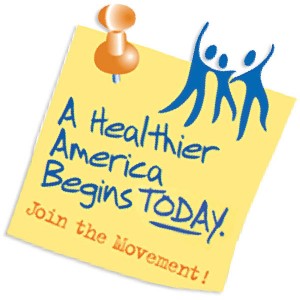The idea of this weeklong celebration is to encourage individuals to make healthier choices and to live safer.
 In 1995, President Clinton declared the first week in April to be National Public Health Week. Since then, communities from all over the nation have observed this week as a time to place a focus on the issues that are important to them and the ways in which they can improve the overall health of everyone in the community, especially those individuals who are at the greatest risk.
In 1995, President Clinton declared the first week in April to be National Public Health Week. Since then, communities from all over the nation have observed this week as a time to place a focus on the issues that are important to them and the ways in which they can improve the overall health of everyone in the community, especially those individuals who are at the greatest risk.
By directing the attention of the public to safety, wellness, and health related issues, the idea of this weeklong celebration is to encourage individuals to make healthier choices and to live safer. By making this into an issue that everyone can understand and relate to, the overall health can be improved and individuals of every background can live longer and enjoy a higher quality of life. While every community will celebrate this particular week differently, the vast majority will focus on certain areas that everyone in the public can understand and get behind. Just some of these helpful suggestions will likely include:
- Exercising regularly
- Nutrition
- Immunizations
- Routine screenings and checkups
- Quitting tobacco
- Good sanitation to prevent the spread of infection
While none of these suggestions will be considered groundbreaking by anyone, the average individual may be somewhat surprised to find just how lax a great majority of people are when it comes to things like checkups and screenings and even basic sanitation practices. Whether this week involves reminding people to thoroughly wash their hands after using the restroom or cleaning all fruits and vegetables before using them to prepare meals, these small and simple changes can have a dramatic effect on the overall health of a community at large.
YouTube Special Feature
National Public Health Week — Public Health is ROI: Save Lives, Save Money
Likewise, with obesity now at epidemic proportions, focusing the attention of the public on things like exercise and nutrition is absolutely vital. In fact, eating healthy, well-balanced meals and exercising on a regular basis can make a dramatic difference in the life expectancy of a person and dramatically reduce the amount of money that they will spend on a wide variety of different illnesses. Poor nutrition and a lack of exercise have been linked to everything from heart disease to cancer, diabetes to stress and anxiety. Many communities have not only embraced the idea of a weeklong celebration of public health, but have actually taken it one step further and created campaigns to encourage members of the community to get out and try to be active for at least a half hour every day.
One of the most important considerations when it comes to public health is that it not only can save the lives of people, but it also saves money as well. Just some of the statistics out there that support the idea of good public health will be quite shocking to the vast majority of people out there. For example, there are as many as 300 children who die each year from diseases that could have easily been prevented simply by being vaccinated. By some estimates, one dollar spent on immunizations during childhood can save over $18 later on. Another study suggests that if just 10% of the adults out there took up walking as a regular part of their daily activity, as much is $5.6 billion in healthcare costs related to heart disease could be prevented.
This greater focus on public health care has made some surprising improvements in the lives of people already. By making an investment in HIV prevention, more than $125 billion has been saved in medical cost and as many as 350,000 infections have been prevented. Of course, there is still a great deal of work ahead with tobacco being one of the leading issues facing communities all over the world today. Simply by creating a nationwide smoke-free policy, it is estimated that deaths related to smoking could be reduced by as much as 624,000 which would also save the public up to $316 million in treatment for lung cancer and $875 million in treatment for strokes and heart attacks.
The simple truth is that when the public has a greater understanding of the choices that they can make to improve the overall health of themselves and them most vulnerable members of their community, everyone wins.
Reference –






